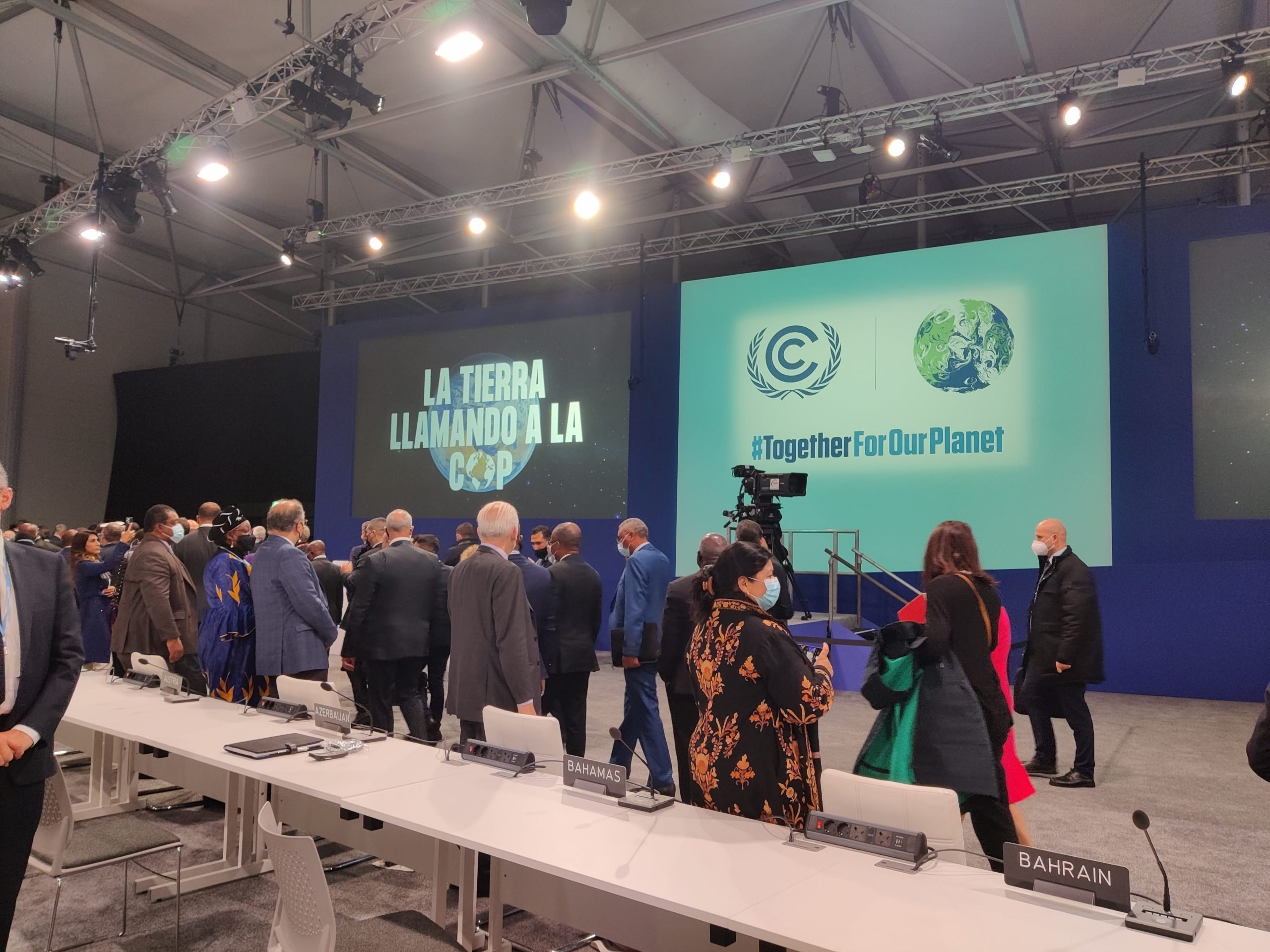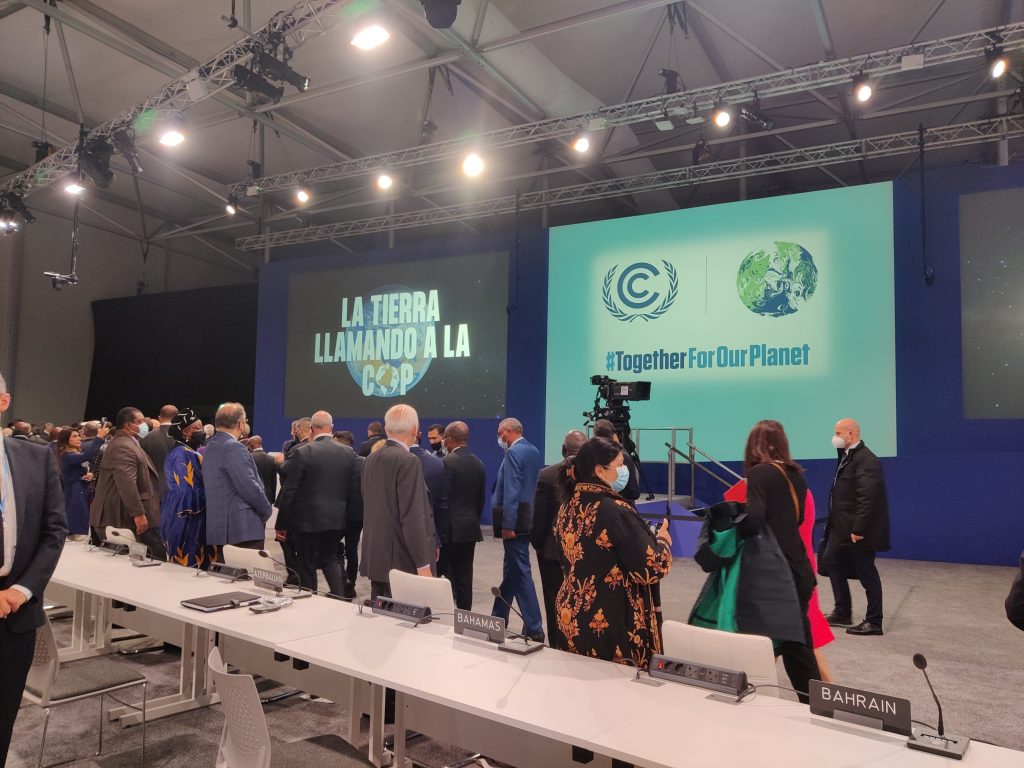
Parisa Hashempour
- As COP26 goes ahead, delegates from developing countries have faced issues accessing accommodation.
- Canceled bookings and overpriced hotels have left representatives staying in the houses of local residents or traveling miles to reach the conference.
- Countries from the global south are those most affected, and it's limiting the time they are able to spend preparing for negotiations.
The UN climate summit COP26 is now underway. But due to hotel cancellations, double bookings, exorbitantly expensive Airbnbs, and a lack of accommodation, delegates from developing nations are left feeling undermined.
Concerned it is creating additional power imbalances in negotiation rooms, logistical nightmares could sabotage the work of small teams of already disadvantaged country representatives who have traveled to Scotland from the front lines of the climate crisis.
Delegates from countries such as Kenya and Malawi are relying on the kindness of local residents to find a place to sleep. Chioma Felistas Amudi, a Nigerian delegate, said to Scottish TV station, STV, "Glasgow is a city with some accommodation problems. A lot of people are stranded, including us."
With a hotel booking canceled, a representative from another country, in South America, said, "Basic hotels are asking for £400 today." He added: "That's nonsensical for developing countries. Right now, I'm going around in circles trying to find a place for us to stay tonight – I shouldn't be doing this, I should be concentrating on the negotiations."
In meeting rooms, his team faces-off against – well-rested – developed nations. "They have large teams with a specialist for each issue, whereas we are a handful of delegates and each of us covers every matter that arises." The stress of finding accommodation each night "is a distraction that makes it harder to keep up with the pace and detail these negotiations require."
In October, the Scottish Affairs Committee heard how the government had failed to secure more than a third of hotel rooms in the Greater Glasgow area. Dr Kat Jones, COP26 project manager at Stop Climate Chaos Scotland, a coalition of civil society organizations working to combat climate change said to the commission, "We've had contacts from many delegates, many many, and even official delegations from countries, who are not finding accommodation. This is definitely an accommodation crisis."
In a bid to provide last-minute accommodation, Airbnb was reportedly offering £100 bonuses to locals listing their homes. Even the city's budget hostels are now unaffordable. Local Scottish news outlets reported the city's Euro Hostel was priced at £750 for the first week of November, while four weeks earlier, the same visit cost £108.
"We called every hotel and travel site we could think of, but they were booked up by other delegations," a delegate from one Central Asian country said. "We have heard some of them are not even in use."
Presuming them to be booked out early by developed nations who were unsure of numbers but had the budget to expend, she said that being from a country with one of the smallest teams at COP26 has made finding affordable accommodation stressful. Currently, her team is traveling 25 miles through traffic to the conference each morning.
The UK government should have planned better, says one sub-Saharan African country representative. "We were unable to book until the last minute because we were waiting to know the agenda, and then everything was gone." Representatives from his country faced technical and language barriers to booking. "These issues for developing nations were not considered," he said.
This has put delegates from developing countries on the back foot, adding to the sense that those most affected by climate change are those most excluded. "The UK is on course to deliver the most exclusionary COP ever, pushing ahead with the summit while COVID-19 still ravages and so many in the Global South can't get a vaccine or visa," added Dipti Bhatnagar, Climate Justice & Energy co-coordinator for Friends of the Earth International, from Mozambique, who has been unable to travel to Glasgow.
In response to these claims, a COP26 spokesperson said, "We are working tirelessly to ensure an inclusive, accessible and safe summit in Glasgow. This includes helping participants from over 70 countries become fully vaccinated, setting up a support service for delegates still looking for accommodation, and working with our hotel provider to ensure a range of fairly-priced accommodation options."
Certainly, global vaccine inequity is an issue beyond the control of the UK government. But, as one South American said, "The biosafety measures of securing against COVID-19 have been extensive. So what is the excuse for the accommodation issue being overlooked, and the free for all market that ensued?"
